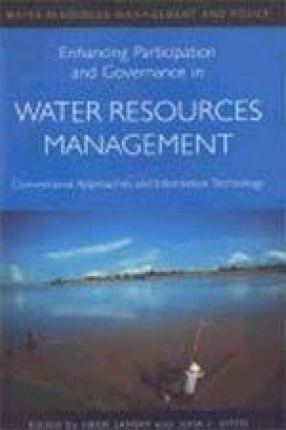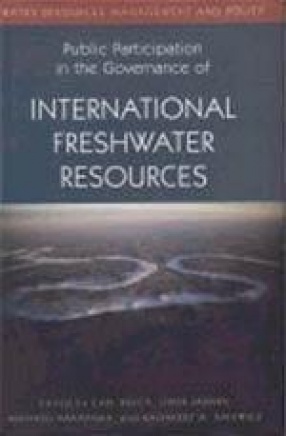More than a billion people lack sufficient clean water to meet their basic needs; 27 nations don’t have enough water and another 16 are ‘water stressed’. The UN predicts that rising demand for water will threaten human and ecological health over the next generation. As public health, development, economics and nature suffer, governments are becoming more aware of the need to ensure access to clean water. This book examines approaches and techniques for getting the public more involved in improving water resources management in order to improve decision-making and problem-solving. The authors identify conventional and emerging mechanisms, approaches and practices for successfully engaging users and other stake-holders. Benefits include raising the profiles of otherwise marginalised water users and improving their access to clean water resources on a sustainable basis. The knowledge that is crucial for water management is distributed across governments, non-governmental organizations and the water users themselves. In most circumstances, water management aims to address these diverse interests by integrating usage across hydrologically meaningful units, such as watersheds. But the authors also explore issues like transboundary flows, multiple basins, inter-basin transfers, and virtual water transfers which can necessitate a broader perspective and new techniques.
Enhancing Participation and Governance in Water Resources Management: Conventional Approaches and Information Technology
In stock
Free & Quick Delivery Worldwide
reviews
Bibliographic information
Title
Enhancing Participation and Governance in Water Resources Management: Conventional Approaches and Information Technology
Author
Edition
Reprint
Publisher
ISBN
8189640119
Length
xii+222p., Figures.
Subjects







There are no reviews yet.